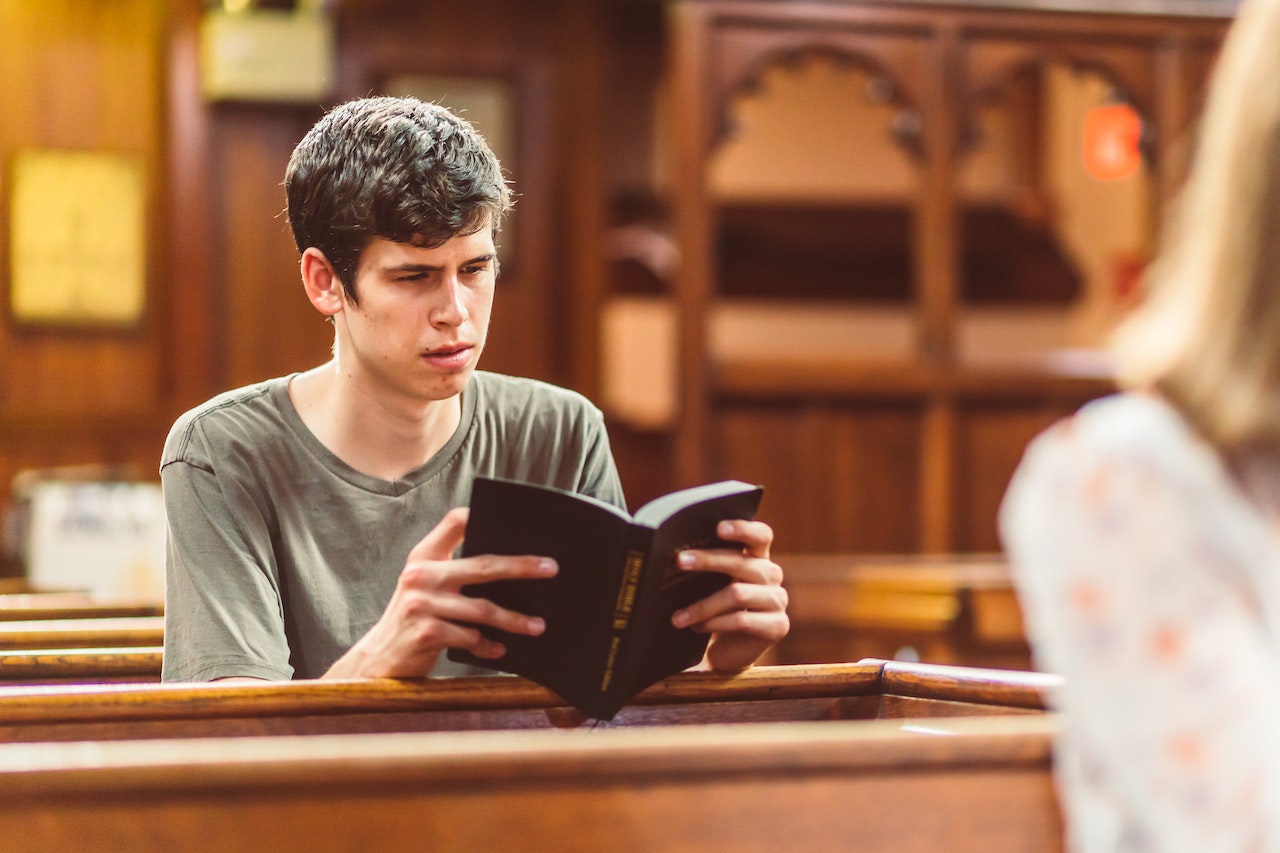Furry is not a religion. It is a subculture and community of people who are interested in anthropomorphic animal characters.
Table of Contents
Furry Community: A New Form of Spiritual Belief?
Have you ever heard of the furry community? If not, you might be surprised to learn that some people consider it to be more than just a hobby or interest – they see it as a form of spiritual belief. But is furry really a religion? Let’s explore this unique subculture and see what makes it so special to its members.
For those who are unfamiliar, the furry community is a group of individuals who are interested in anthropomorphic animals – that is, animals with human-like characteristics. This interest can manifest in various ways, from creating artwork and stories featuring anthropomorphic characters to dressing up in elaborate animal costumes known as fursuits. Many furries also participate in conventions and online communities dedicated to their shared interest.
One of the key aspects of the furry community that sets it apart from other fandoms is the sense of belonging and acceptance that it provides to its members. For many furries, being part of this community is not just about enjoying art and costumes – it’s about finding a place where they can be themselves without fear of judgment or ridicule. In a world that can often be harsh and unforgiving, the furry community offers a safe space where individuals can express themselves freely and connect with like-minded people.
This sense of community and acceptance has led some to view furry as a form of religion. While furry does not have a central doctrine or set of beliefs like traditional religions, it does provide its members with a sense of purpose and belonging that is similar to what many people find in organized religion. In this sense, furry can be seen as a spiritual belief system that helps individuals make sense of the world and their place in it.
Another aspect of furry that has led some to view it as a religion is the emphasis on creativity and self-expression. Many furries see their interest in anthropomorphic animals as a way to explore different aspects of themselves and their identities. By creating and embodying their own unique characters, furries are able to express parts of themselves that they may not feel comfortable sharing in their everyday lives. This creative process can be deeply fulfilling and transformative, leading some to view furry as a form of personal growth and self-discovery.
Of course, not all furries see their interest in anthropomorphic animals as a spiritual belief. For many, furry is simply a fun and enjoyable hobby that allows them to connect with others who share their interests. However, for those who do see furry as a form of religion, the sense of community, acceptance, and self-expression that it provides can be incredibly meaningful and fulfilling.
In the end, whether or not furry is considered a religion is ultimately up to the individual. What is clear, however, is that the furry community offers its members a unique and special place where they can be themselves and connect with others who share their interests. And in a world that can often feel isolating and alienating, that sense of belonging and acceptance is truly something to be cherished.
Exploring the Role of Furry Conventions in Fostering Religious Practices
Have you ever heard of the furry community? If you haven’t, you might be surprised to learn that for some individuals, being a furry is more than just a hobby or interest – it’s a way of life. In recent years, there has been a growing interest in exploring the role of furry conventions in fostering religious practices within the community. But is being a furry really a religion?
To understand this question, we first need to delve into what it means to be a furry. The furry community is a subculture of individuals who are interested in anthropomorphic animal characters, often creating their own unique personas known as “fursonas.” These individuals may participate in activities such as creating art, writing stories, or even dressing up in elaborate costumes known as fursuits.
For many furries, their involvement in the community goes beyond just a shared interest in anthropomorphic animals. Some individuals find a sense of belonging and community within the furry fandom, forming deep connections with others who share their passion. In this sense, being a furry can be seen as a form of identity and self-expression.
But where does religion come into play? Some scholars have argued that the furry community exhibits characteristics of a religion, such as shared beliefs, rituals, and a sense of community. Furry conventions, which are large gatherings of furries from around the world, often include events such as group discussions, art showcases, and even religious ceremonies.
At these conventions, furries may participate in rituals that are reminiscent of religious practices, such as group meditation sessions or ceremonies honoring their shared beliefs. Some furries even create their own spiritual practices, drawing inspiration from various religious traditions or creating entirely new rituals that reflect their unique beliefs and values.
While the furry community may not fit the traditional definition of a religion, it is clear that for many individuals, being a furry is a deeply meaningful and spiritual experience. The sense of community and connection that furries find within the fandom can be a source of comfort and support, much like the sense of belonging that many people find in organized religion.
In this way, furry conventions can be seen as a space where individuals can explore and express their spirituality in a supportive and accepting environment. Whether through art, storytelling, or shared rituals, furries have found a way to connect with something greater than themselves and form a sense of community that transcends traditional boundaries.
So, is being a furry a religion? While the answer may vary depending on who you ask, it is clear that for many individuals, the furry community offers a sense of belonging and spiritual fulfillment that is akin to religious experience. Whether you’re a furry yourself or simply curious about this unique subculture, it’s clear that the role of furry conventions in fostering religious practices is worth exploring further.
The Intersection of Furry Culture and Traditional Religious Beliefs

Have you ever heard of the furry community? It’s a subculture of people who are interested in anthropomorphic animals, often dressing up in elaborate costumes known as fursuits. While many people see furry culture as simply a hobby or form of self-expression, some individuals within the community have taken it a step further, viewing it as a spiritual or religious practice. But is furry really a religion?
The idea of furry as a religion may seem strange to some, but for those who are deeply involved in the community, it can be a deeply meaningful and spiritual experience. For some furries, their connection to anthropomorphic animals goes beyond just a love of cartoons or dressing up in costumes. They see these characters as representations of something greater, a way to connect with the divine or explore their own spirituality.
In some cases, furries may even create their own belief systems or mythologies based around anthropomorphic animals. These can range from simple personal beliefs to more elaborate and organized religions with their own rituals and practices. While these beliefs may not be recognized by mainstream religions, they can be just as important and meaningful to those who hold them.
One of the key aspects of furry as a religion is the sense of community and belonging that it provides. Many furries find acceptance and support within the community that they may not find elsewhere. This sense of belonging can be a powerful force, helping individuals to feel connected to something greater than themselves and providing a sense of purpose and meaning in their lives.
Of course, not all furries see their involvement in the community as a religious or spiritual practice. For many, it is simply a fun and creative way to express themselves and connect with others who share their interests. However, even for those who do not view furry as a religion, the sense of community and camaraderie that it provides can still be a powerful and positive force in their lives.
Ultimately, whether or not furry can be considered a religion is a matter of personal belief and interpretation. While some may see it as a legitimate spiritual practice, others may view it as simply a fun and creative hobby. Regardless of how one chooses to define it, furry culture continues to thrive and evolve, providing a sense of community and belonging to those who are drawn to it.
In the end, whether furry is a religion or not may not be as important as the positive impact it can have on the lives of those who are involved in the community. By providing a sense of belonging, acceptance, and support, furry culture can help individuals to explore their own identities, connect with others, and find meaning and purpose in their lives. And in a world that can often feel isolating and disconnected, that sense of community and connection is something truly valuable and worth celebrating.
Critiques and Controversies Surrounding Furry as a Religion
Have you ever heard of the furry community? If you haven’t, let me give you a brief introduction. The furry community is a subculture of people who are interested in anthropomorphic animal characters, often dressing up in elaborate costumes known as fursuits. While many people see the furry community as a fun and creative outlet, there has been some controversy surrounding the idea of furry as a religion.
One of the main arguments for considering furry a religion is the strong sense of community and shared beliefs among its members. Many furries see their interest in anthropomorphic animals as a spiritual or religious experience, connecting with something greater than themselves through their shared love of these characters. Some furries even participate in rituals or ceremonies that they see as religious in nature, further blurring the lines between furry and traditional religions.
However, there are also many critics who argue that furry is not a religion, but simply a hobby or interest. They point out that while furries may have a strong sense of community, this does not necessarily make them a religious group. Additionally, some critics argue that the lack of a central belief system or organized worship practices means that furry does not meet the criteria for being considered a religion.
Despite these criticisms, the debate over whether furry is a religion continues to rage on. Some furries see their interest in anthropomorphic animals as a deeply spiritual experience, while others see it as simply a fun and creative outlet. Ultimately, whether or not furry is considered a religion is a matter of personal belief and interpretation.
One thing that is clear, however, is that the furry community has faced its fair share of controversy and misunderstanding. Many people outside of the community see furries as strange or deviant, and there have been instances of discrimination and harassment against furries. This has only fueled the debate over whether furry should be considered a religion, as some see it as a way to legitimize and protect the community from discrimination.
In the end, whether or not furry is a religion is a complex and nuanced question that may never have a definitive answer. What is important is that members of the furry community feel accepted and supported in their beliefs and interests, whether they see furry as a religion or simply a fun hobby. As with any subculture, it is important to approach furry with an open mind and a willingness to learn more about the beliefs and experiences of its members.
In conclusion, the debate over whether furry is a religion is likely to continue for years to come. While some see furry as a deeply spiritual experience, others see it as simply a fun and creative outlet. Ultimately, the most important thing is to respect the beliefs and experiences of members of the furry community, regardless of whether or not you see furry as a religion. After all, we could all use a little more understanding and acceptance in our lives.
Personal Testimonies: How Furry Has Impacted Individuals’ Spiritual Journeys
Have you ever heard of the furry community? For those who are unfamiliar, furries are individuals who are interested in anthropomorphic animal characters, often creating their own unique personas known as fursonas. While some may view the furry fandom as simply a hobby or form of self-expression, for others, it goes much deeper than that. In fact, for some individuals, being a part of the furry community has had a profound impact on their spiritual journey, leading them to question whether furry could be considered a religion.
One such individual is Alex, a 25-year-old artist who has been a part of the furry community for over a decade. For Alex, being a furry is not just about dressing up in a fursuit or attending conventions – it’s about connecting with something greater than themselves. “Being a furry has helped me explore my spirituality in ways I never thought possible,” Alex explains. “Through my fursona, I’ve been able to tap into a deeper sense of self and connect with others on a spiritual level.”
For Alex, furry is more than just a hobby – it’s a way of life. “I see furry as a form of spirituality,” Alex says. “It’s a way for me to express my beliefs and connect with others who share similar values. In a sense, furry has become my religion.”
But Alex is not alone in his beliefs. Many other furries have also found a sense of spiritual fulfillment within the furry community. For some, furry provides a sense of community and belonging that they may not have found elsewhere. For others, it offers a way to explore their own identity and connect with something greater than themselves.
One such individual is Sarah, a 30-year-old writer who has been a part of the furry community for several years. “Furry has helped me explore my spirituality in ways I never thought possible,” Sarah explains. “Through my fursona, I’ve been able to connect with others on a deeper level and explore my own beliefs in a way that feels authentic to me.”
For Sarah, furry is not just a hobby – it’s a way of life. “I see furry as a form of spirituality,” Sarah says. “It’s a way for me to express my beliefs and connect with others who share similar values. In a sense, furry has become my religion.”
While some may question whether furry can truly be considered a religion, for those who have found spiritual fulfillment within the furry community, the answer is clear. Furry is not just a hobby or a form of self-expression – it’s a way of connecting with something greater than ourselves and exploring our own beliefs in a way that feels authentic and meaningful.
So, is furry a religion? For some individuals, the answer is yes. Furry has provided a sense of spiritual fulfillment and connection that they may not have found elsewhere. And while furry may not fit into traditional definitions of religion, for those who have experienced its transformative power, it is clear that furry is much more than just a hobby – it’s a way of life.
Conclusion
There is no definitive answer to whether or not being a furry constitutes a religion, as beliefs and practices within the furry community can vary greatly among individuals. Some may view their involvement in the furry fandom as a form of spirituality or religious practice, while others may simply see it as a hobby or interest. Ultimately, the classification of furry as a religion is subjective and open to interpretation.
For licensing reasons, we must provide the following notice: This content was created in part with the help of an AI.


